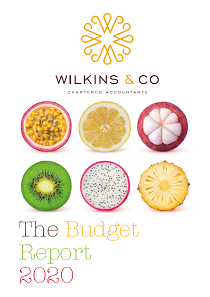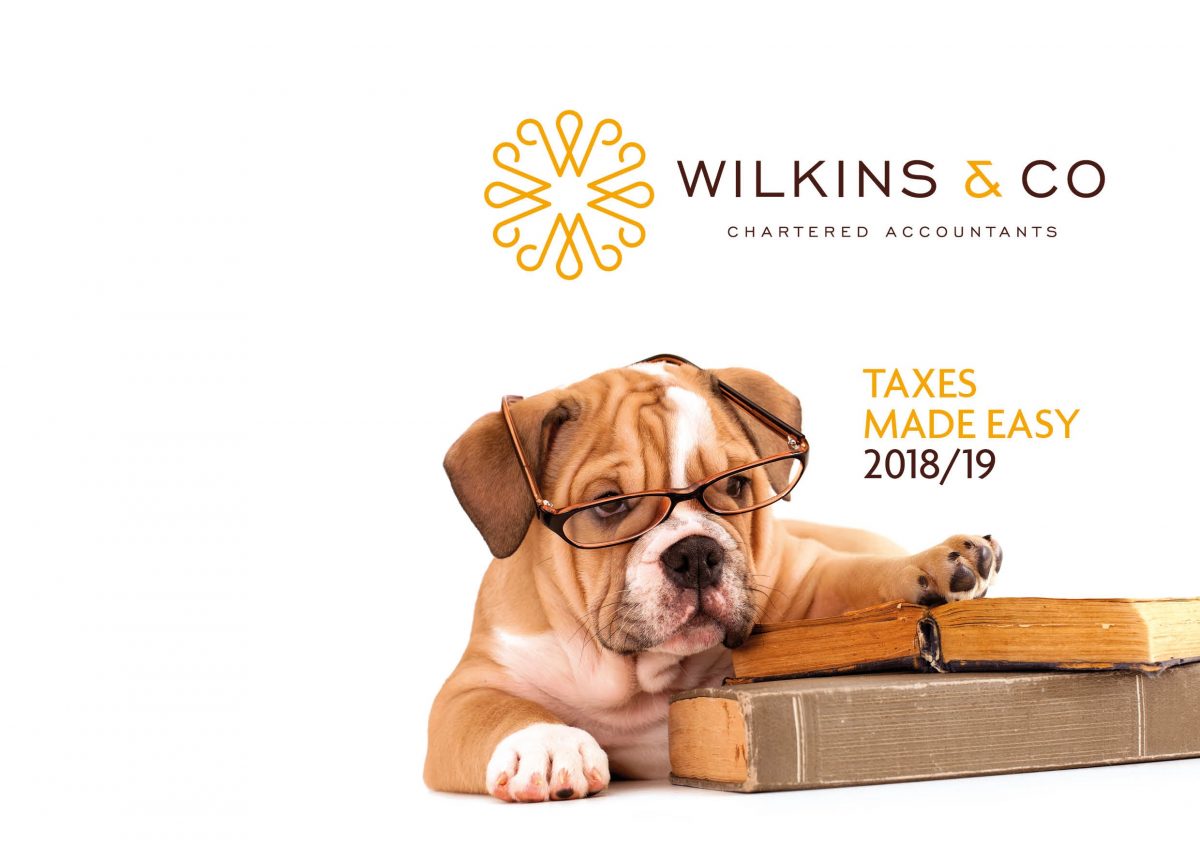Please click here to read our summary of yesterday’s Budget.


Please click here to read our summary of yesterday’s Budget.

If you have yet to file your personal tax return, you probably have a rising sense of panic as you now have less than 3 weeks to get it in!
There is an automatic £100 fine for your return being late, whether you owe any tax or not, and although you can appeal with the fine with an excuse, you are very unlikely to get it overturned!
I have put together a summary of blogs I have done over the last year to hopefully help you with the most frequently asked questions for a sole trader trying to prepare their accounts and tax return. I hope you may find them useful.
I’ll leave my blog about being organised and getting it done early in the year for another time!!
Good luck, and if you decide its all too much and this is the year you are going to do it differently and be organised – you know where I am (next year!)

Recent statistics show that the take-up of the new scheme has been low, not helped by widely-reported technical issues soon after the scheme was launched.
So what does the scheme offer – and can you take advantage of it?
Under the Tax-Free Childcare scheme, for every 80p you put into your online account, the government will add 20p.
In total you can use the scheme to help pay for up to £10,000 of childcare per child each year – giving you an extra £2,000 per child (up to £4,000 if your child has disabilities).
Tax-Free Childcare is open to all qualifying parents, unlike the old Childcare Vouchers scheme offered by some companies. It is open to all working parents, including those who are self-employed, with children up to the age of 11 (or 17 if your children have disabilities)
You can get Tax-Free Childcare at the same time as 30 hours free childcare if you are eligible for both. However, you won’t be able to get the tax-free childcare if you already get Universal Credits.
To qualify, you and your partner, need to be working and earning a minimum of £131 a week, and a maximum of £100,000 a year. If one of you does not work, then you are not able to claim.
Tax-Free Childcare can be used to pay for activities by any regulated childcare provider who has registered with the Scheme, and this may include holiday and after-school clubs as well as the more obvious nurseries etc, so it is worth checking who is covered in your local area.
If you are eligible for the scheme, then you need to create an online childcare account via the Government Tax-Free Childcare site. You then pay the money into this account, and transfer funds from there to pay your childcare provider.
So even if you do not regularly use childcare, it is worth checking if any provider that you do use is signed up to the scheme, and if you could be saving money by setting up an account.
For more information, please contact Rosie Forsyth at Wilkins & Co.

There are 2 big changes coming in from April 2020 that will affect anyone selling a property that is now rented out but that has once been your main home.
Rental properties that have never been the landlord’s main home do not get these reliefs anyway, and are therefore not affected.
When you sell a property, you pay capital gains tax (CGT) on the profit you make. CGT is paid at the rate of 18% or 28% on residential property transactions depending on your tax bracket.
At the moment you don’t have to pay any CGT for the years you lived in the property, plus an additional exemption for the final 18 months that you owned it, even if you weren’t living there at the time.
For example, if you have owned the property for 10 years, lived in it for 6 years and then rented it out for the last 4 years, you would not pay CGT on 7.5 years of ownership – or 75% of the gain.
But from April 2020 this final period exemption will be cut to 9 months. This means in the above example, after April you will not pay CGT on 6.75 years or 67.5% of the gain.
(There will be no change to the 36 months available to disabled people or those in, or moving into, a care home.)
The other change is arguably a bigger deal and involves lettings relief, which currently provides up to £40,000 of relief (£80,000 for a couple) to people who let out a property that is, or has been in the past, their main home.
From April 2020, lettings relief will only apply where the owner actually SHARES OCCUPANCY of the home with a tenant – effectively spelling the end of this tax relief for most people!
The relief will not be available at all for properties sold after 6 April 2020 – there are no transitional rules allowing you to claim it for the years up to April 2020 – it is simply going!
If you are therefore currently selling or thinking of selling a rental property, that has previously been your main home, then this needs to be sold before 5 April 2020 if you want to keep your lettings relief, and the current 18 month final period exemption.
For more information, please contact Rosie Forsyth of Wilkins & Co.

Setting up a new business can be daunting and the To Do list endless. Here are 5 things that you need to do to get the financial side of your business up and running:
You need to tell HMRC that you have become self employed. You can do this online here. You will receive your Unique Taxpayer Reference (UTR) in the post within about 2 weeks from HMRC. This is a 10 digit number which you need to keep safe, as you need this to be able to file your tax return.
You should register with HMRC as soon as possible after you start trading, and by 5 October following the end of the tax year in which you started self-employment at the latest.
It is always a good idea to have a separate bank account that you just use for your business. Not only does it make preparing your year end accounts easier, it makes sure that you account for all your business expenses, gives you a clearer idea of how your business is doing, and if HMRC were ever to enquire into your affairs, gives them less scope to start asking other questions!
As a sole trader, you don’t need to set up a “business” bank account. You just need to have an account in your name that you use solely for business purposes. If you have any business related DD’s (mobile phone/subscriptions) move them over to this account.
Presumably you want to make money out of your business, so you do need to think about what you are going to charge people for your services. I’m not going to cover various pricing strategies here, but it is important to have think about all the different types of costs that are going to be involved with running your business, and to make sure that your prices will generate enough income to cover them.
You also need to consider the amount of “admin” time that is involved in running a business. Running that “hour workshop” won’t just take an hour of your time, you need to plan it, advertise it, deal with the finances of it, follow up etc so you need to build all this time into your pricing strategy.
You need to get this organised from the start. Unless you are going to be raising only a handful of invoices and have very few expenses, I would definitely consider using a cloud based accounting package. These are subscription based, so you need to take this cost into account, but packages start at under £10 a month, so are well worth the cost. At Wilkins & Co, we use Xero with our clients, but there are many others to take a look at as well.
Make sure you are aware of the types of expenses that you can claim against your business and keep records of all these, as you will need them to prepare your accounts for HMRC, or to pass to your accountant.
Being self employed as opposed to employed, no-one pays your tax for you!
It is your responsibility to pay HMRC your tax and NIC. You will do this by preparing a set of accounts for your business and sending HMRC a tax return. Your accounts will generally be prepared to the end of the tax year (5 April), and then you have until the following 31 January to submit your tax return and pay your tax and NI.
It is therefore a good idea to put money aside as you go along to pay your tax bill. It is very easy to see money in your business bank account, and take it out and spend it – and then realise you have a tax bill to pay at 31 January that you have not budgeted for. How much you should put aside does depend on your personal situation, and what other income you may have in a tax year, but 20-30% of your profits put aside should cover your tax bill for the year. Do check with an accountant though for personal advice on this.
No 6 could be the most important – talk to an accountant!!! You can contact me at rosie@wilkinsco.co.uk.

If you are starting up in business, here’s my summary of useful blogs to help you with your accounts if you are self employed!
Hopefully there is something there to help you, if you need help and want to get in touch, please contact Rosie Forsyth here.

You did your tax return in January – so why have you suddenly got a tax bill in the middle of July?
Payments on account are a pain in the backside for many self employed businesses, especially when you may not have been expecting to make a payment part way through the year. Originally devised to help spread the cost of your tax bill over the year, payments on account are just what they say they are – a “part payment” of your anticipated tax bill for the current tax year.
How are they calculated?
The payment on account is effectively paying off some of your tax bill in advance, and is calculated according to last year’s tax bill.
How these are calculated is easiest explained with an example.
If you started your business in May 2017, you will have prepared your first set of accounts to 5 April 2018, calculated your tax bill for 17/18, filed your tax return and paid your tax at 31 January 2019. Let’s say your tax bill was £3,000. You will have paid this by 31 January 2019. But you will also have made a payment on account of your next year’s (18/19) tax bill at the same time – and this was automatically calculated at 50% of the previous year – so £1,500. So actually at 31 Jan 2019 you paid £4,500.
You will then make your second payment on account for 18/19 by 31 July 2019 and again this is 50% of last year’s bill – so another £,1500.
So by now (31 July 2019) – you have paid £3,000 on account of your 18/19 tax bill – even though you may not have yet prepared your accounts for the year, or filed your tax return. You may not yet therefore know what your final tax bill for 18/19 is going to be.
If your profits in Year 2 of trading have gone up – and when you do your accounts and file your tax return, your tax bill for 18/19 is worked out to be £5,000, then you have already paid £3,000 of it during the year – so you only owe a further £2,000 at 31 January 2020. But, the process is repeated – so at 31 January 20 you will owe £2,000 for this year – and your first payment on account of 19/20, calculated as before at 50% of the current year bill (£2,500) – so £4,500 in total. You then owe at 31 July 2020 your second payment on account of 19/20 – another £2,500.
If you are in the scenario where profits are lower than the year before, then you will have overpaid in the year with your 2 payments on account and you will be due a refund for that year. In the example above, if your tax bill for 18/19 worked out to be £2,400, then because you have paid £3,000 during the year, then you have overpaid £600. But, taking into account your first payment on account for 19/20 which will be 50% of £2400 = £1200, you still owe £1200 – £600 = £600 at 31 Jan 2020!
Confused?? Who said tax wasn’t taxing!
For a new business, the payment on account regime can really hit your cashflow, so you need to be prepared for it. Your first tax payment in the January is really 150% of your tax bill, by the time you have made your payment on account as well. Another good reason for doing your tax return in plenty of time – so you know what this payment is going to be – and can budget for it accordingly.
If you know your profits are going to be lower in the next year, perhaps because you are doing less hours or lost a key client, then you can apply to reduce the payments on account that are going to make – to avoid overpaying in the first place. Don’t overestimate the reduction though, as HMRC will charge you interest if you get it wrong and reduce the payments too much.
There are some circumstances in which a payment on account will not be due. If your tax bill for the previous year was less than £1,000 after PAYE or other deductions at source, no payment on account is necessary. Similarly, no payment on account will be due if, in the previous tax year, 80 per cent or more of your tax was deducted at source.
You can check the payments due on your account by logging into your personal tax account. This will show you the amount due for the year and what you have paid already on account of this tax year.
For further help in understanding your payments on account, please contact Rosie Forsyth at Wilkins & Co.

Your tax return for 18/19 needs to be filed by 31 January 2020, but can be done NOW.
Here are 10 great reasons to get it out of the way before the heatwave arrives (OK – wishful thinking, but you never know)
So if you are inspired to get your return done early this year and need some help, then please do get in touch. You can contact us here at rosieforsyth@wilkinsco.co.uk

We can’t run our businesses without our mobile phones, but are you claiming the right amount from your business?
The rules for claiming the cost of your mobile phone from your business are different depending on whether you are a sole trader or a limited company.
For a sole trader – it’s relatively straight forward.
You can claim a percentage of your phone bill, or new phone, depending on the percentage that you use it for your business. You don’t need to analyse all your calls, but it is a good idea to keep track of your business usage for 2-3 months, and then apply that percentage to the full year. HMRC may ask you one day how you came to the percentage that you did, and you may find it hard to justify that you use your phone 90% for business, when you actually only work one day a week -so just be sensible!
For a limited company, as with most things, it’s more complicated.
If your phone contract is in your personal name, and the company pays the bill, or reimburses you for it, you have a benefit-in-kind – and this should be disclosed on a form called a P11D at the end of each tax year. Both you and the company will have tax to pay on this amount.
The logic behind this, is that with contracts nowadays, we all get so many free minutes and texts etc, that there is actually no additional cost to you for using your phone for business. You would be paying your phone bill anyway, and so getting the company to pay it, is really the same as paying yourself additional money from the company. If you can separate additional business calls, eg they are overseas calls, then you can claim these from the business as a legitimate expense.
If you can put your phone contract in the company name, then HMRC will accept that private use of your “company” phone is minor, and the company can pay the whole bill, without any personal tax problems.
The same rules will apply for broadband costs in your home.
So if you have a limited company, you basically have a choice:
It’s a really common mistake to think that the company can just pay your personal mobile phone bill, as you use it for business, but get it wrong and you could land yourself and the company further unexpected tax bills!
For any further information, please contact Rosie Forsyth at Wilkins & Co.

The personal allowance for 2019/20 has increased to £12,500 and the basic rate threshold to £50,000. This means you start paying higher rate tax only on income up over £50,000.
The dividend allowance remains at £2,000.
So for a limited company director, what is the most tax efficient pay strategy this year and why?
Most owner managed businesses take a low salary and a higher dividend to be tax efficient. Why is this the case? (Prepare for some number crunching!)
So what amounts should you pay yourself to minimise your tax liabilities?
There are 2 options:
This option is simplest and means you pay no NI for the year (but it does still count as a qualifying year for your state pension)
Note that you will need to set up a payroll for the company and file RTI returns paying this salary, and you will need to file a personal tax return.
This is more tax effective if you have more than one person on the payroll and can claim the NIC Employment Allowance. If you are a sole director, you cannot claim this and should stick to option 1.
So which option?
Keeping it simple or for sole directors with no-one else on the payroll – option 1. There is no NI to pay and you have a fixed salary each month of the year.
If you have more than one person on the payroll, can benefit from the Employers Allowance, and will remember to pay over the NIC when it is due, then option 2 will save you £271 overall in tax for the year and is therefore more tax-efficient.
Do remember that to pay these salaries from your limited company, you need to have an official payroll set up with HMRC and to file RTI returns. The above illustrations are also for general guidance only, and are based on a UK taxpayer with no other income for the year. For help with this, or further advice on tax efficient pay, please contact Rosie Forsyth of Wilkins & Co